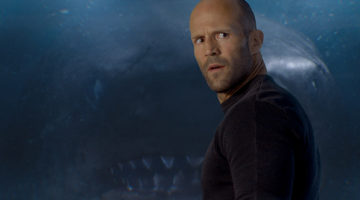Review: Jersey Boys
The stage to screen adaptation of Jersey Boys is so faithful, so straight forward, one might forget that Clint Eastwood has enlisted as director on this fun, overlong, melodramatic musical.
Checking all the boxes of any music industry rise and fall – the embrace of fame, the excess, the infighting, the loss of family – Jersey Boys is at its best when it’s singing and dancing, of course.
It can be a lot of fun too, especially when a young Frankie Castelluccio is served with being the driver during a heist that goes comically wrong. The dewy-eyed 16-year-old with a voice unlike any other roams about under the tutelage of Tommy DeVito (Vincent Piazza), a struggling musician looking to break big with a band while also “repurposing” goods and dabbling in the mob world of 1950s New Jersey.
No stranger to the getting in trouble with the law, Tommy serves some time (he smiles and greets the guards) as does Nick Massi, his musical partners, which puts any hopes of fame and fortune on hold. It isn’t until these three wayward souls meet Bob Gaudio (Erich Bergen), a man can seemingly write hit songs overnight, that a cohesive group is formed and fame slowly starts to come.
This moment comes too far into the movie, as Jersey Boys, which only ocassionally steps into serious drama, clocks in at 2 hours and 14 minutes. It doesn’t take long to figure out Tommy is the wise-talking firecracker, Frankie is the genuine naïve idealist, Nick is a tepid follower, and in New Jersey there is a lot of crime and sordid dealings.
Gyp DeCarlo is the kingpin of such underground trade, but as played by Christopher Walken, his appearances come with an air of eccentricity and even absurdity, smartly lightening up scenes that would otherwise fall into perfunctory melodrama.
Similarly goes the presence of Bob Crewe (Mike Doyle), the somewhat flamboyant and incredibly talented and successful producer that enlists The Four Seasons and leads them to the top. His sharp and sassy tongue offers plenty of laughs, especially his rapport with the savvier Bob, whose boyish charm and strong sense of self make him the most enjoyable character.
Franki and Tommy go through their own predictable movie storylines, and while it is true to life, the drama is entirely of a standard template.
Which is all to say that the film’s success falls on the music; the infectious, incomparable, and timeless music. There are maybe two or three showstoppers, and a curtain call of sorts may redeem what is at times an interminable film (one that is at least 20 minutes too long). The best sounds – that is, their number one hits – don’t come till later, but a rendition in Detroit of ‘Can’t Take my Eyes Off You’ is unforgettable.
It’s a credit to Mr. Eastwood in keeping together the four stars of the stage show for the movie version, in which it’s often the case where Broadway talents are pushed aside movie stars.
However, the music does feel at times just off because it is so obvious it was recorded in a studio and not live. That element enhances a stage show, but like so many other musical film adaptations, something is lost in translation.
That is inevitably what you get: a serviceable film that loses the best of its source material but still tells an interesting, albeit familiar story. I suppose it’s the best you get for the price. See the stage show if you can, but the cheaper, convenient version is available too; however, you get what you pay for.
[star v=3]





